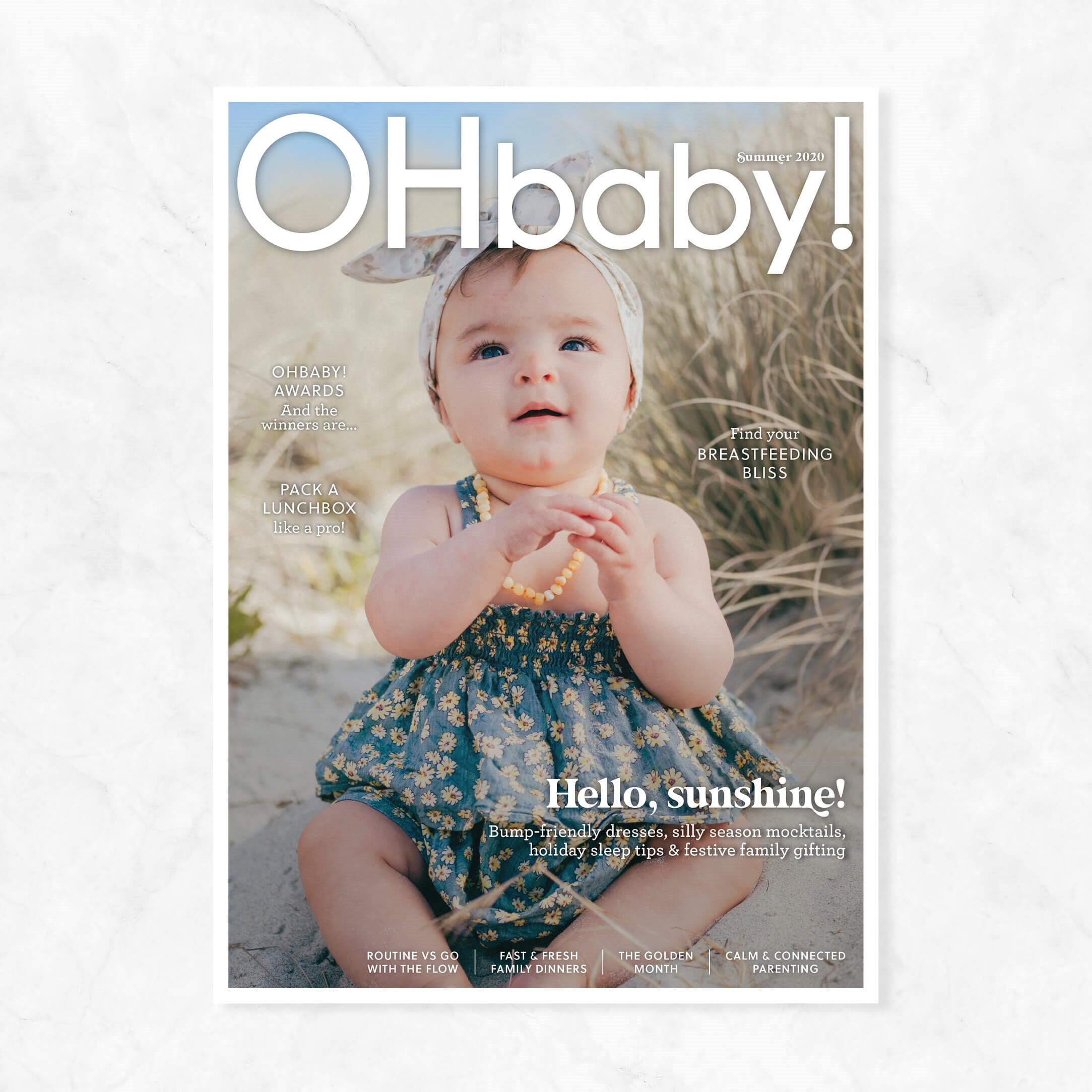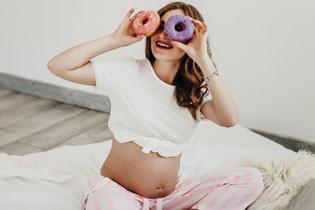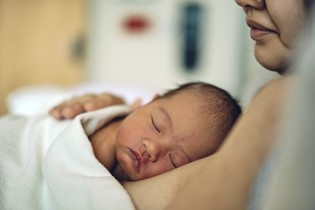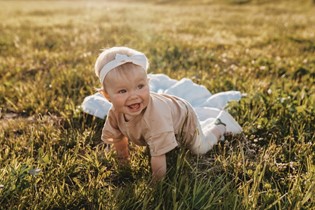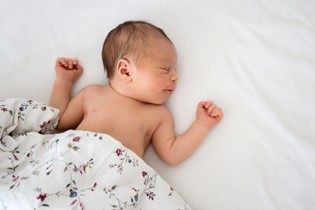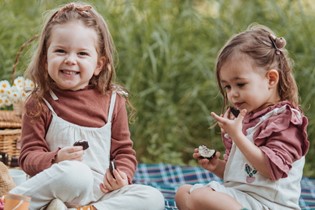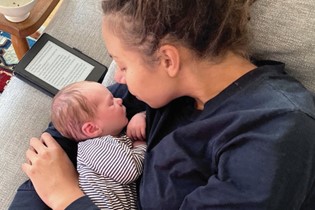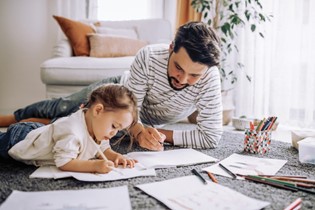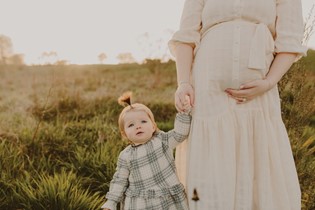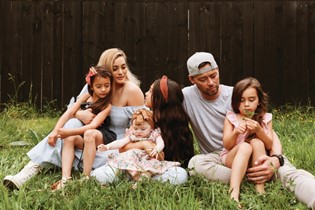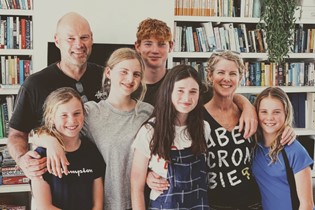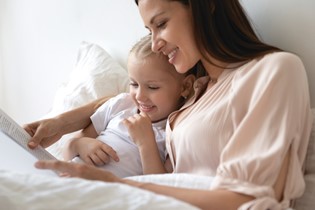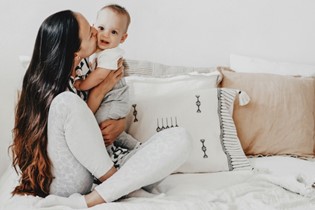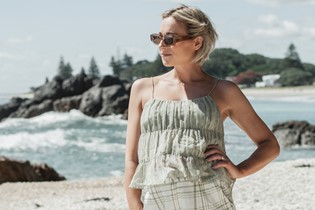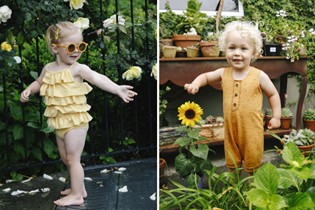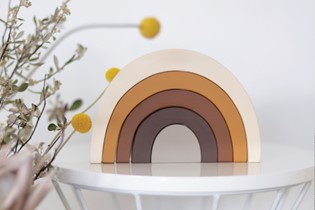How to connect with your kids using mindful parenting
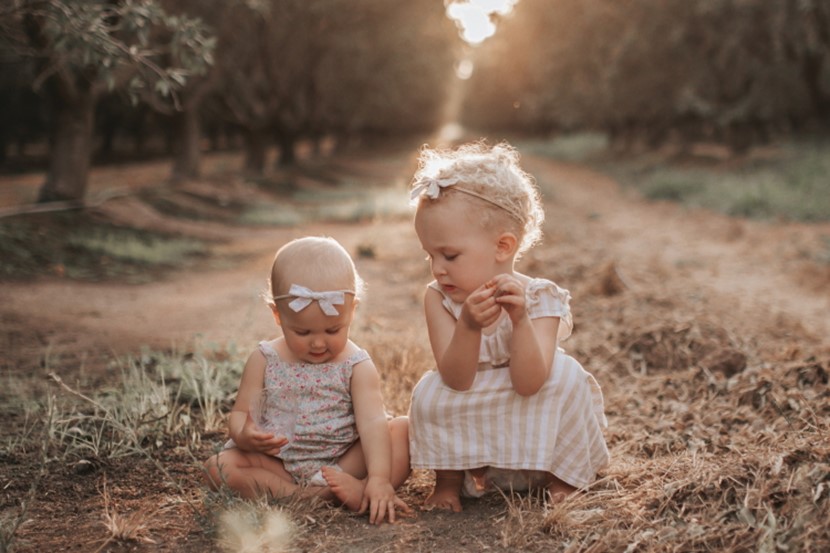
Can practising mindfulness really help us connect more deeply with our kids, or is it just one more thing to add to the to-do list?
Being a mum of five would give any woman a certain amount of parenting credibility, but counsellor and parent coach Shirley Pastiroff has one-upped that and is now also a published author on the subject. Shirley's book The Mindful Parent has received rave reviews for its no-fuss, science-based approach to staying sane and becoming a more connected parent.
In this excerpt from her book, Shirley outlines her journey to mindful parenting.
HOW IT ALL BEGAN
My journey into parenting had started off quite well, with a first baby who ate and slept according to the manual. So we had another. With two very close together and an international move, life became more challenging. I remember getting dressed one morning in our new rental home, and wondering if my baby and toddler could manage by themselves for a few years, or if I could loan them out for a while to someone who knew what they were doing.
Deep down I thought I probably was the best person for the job, but because I was having as many meltdowns as they were, I was pretty sure I wasn’t doing my job very well.
Our lives settled down and we had one more child. It was a challenge but we were doing okay. My partner is calm, so the kids had a great dad, and I constantly tried to overlook the fact that I couldn’t keep my cool in quite the same way. I told myself that it was because I was at home with them all day and saw them more, so it made sense that I was a little more volatile.
Two years later we had a beautiful and double surprise: identical twins. The stakes shot up. Our eldest was just six, our next one not yet in school, and our third was still in nappies. This time the wheels really started to come off.
We still had many great days. I was a great parent when they were great kids. A simple equation: when they behaved, I behaved. When they didn’t, I didn’t. With five children, the number of windows of opportunity when all of them were ‘behaving’ declined sharply. It took only one child being challenging for me to feel anxious. Two was generally enough to tip me into stress. Three or more and we deteriorated into chaos.
There were lots of days that I promised myself for the thousandth time that I would never yell at them like that again. I would see that face of fear looking back at me, and know I’d gone too far, and wish I could take back those last few minutes. Then I’d do it all over again. Some of you know what I mean, I’m sure.
And so my children lived in this strange and slightly unsafe world. I gave them lots of love and attention, but if I couldn’t handle them I would get angry and emotional or I’d withdraw from them.
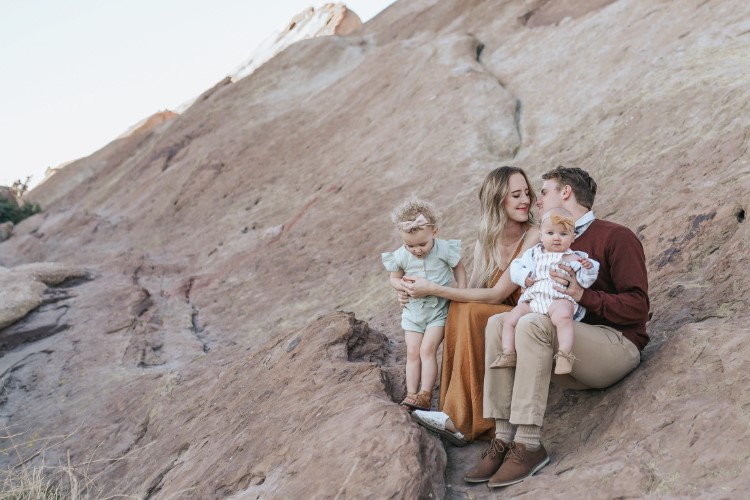
Almost all of my chaotic reactions were in private. In public I was quite impressive. There’s nothing like leaving the house with five children who look mostly clean and happy, to get lots of compliments. I think it’s one of the reasons I love other parents so much. The mums – and it was mostly mums that I hung out with – were so generous, so quick to let me know they thought I was amazing, and how did I do it?
Even though I heard the nervous 'I can’t even manage two' murmured following my reply, I enjoyed the attention. "If only they knew" hovered just beneath the surface for me. Still, my kids seemed to be doing well so I wondered if parenting was just a rollercoaster and what I was experiencing was normal.
However, I could also see similarities to patterns I had grown up with that I didn’t like. I wasn’t just out of my depth by being so outnumbered, I could also feel the influence of my own parents who, although they loved me dearly, had found parenting challenging. As a child I remember feeling that I had to be a good girl in order to be sure of their love, and how our home became unpredictable when things didn’t go according to plan.
I knew my upbringing had influenced patterns of anxiety and self-criticism that I experienced, but I had always been determined to parent differently. I intended to be unconditional in my love. I wanted my children to feel fully accepted. And I planned to offer my kids a home full of fun and laughter, warmth and connection.
These were great ideas in theory, but I discovered that they were completely impractical. When I was under pressure I could clearly see the same reactive patterns in myself that I’d seen in my home growing up. I was unwittingly repeating the same message all over again.
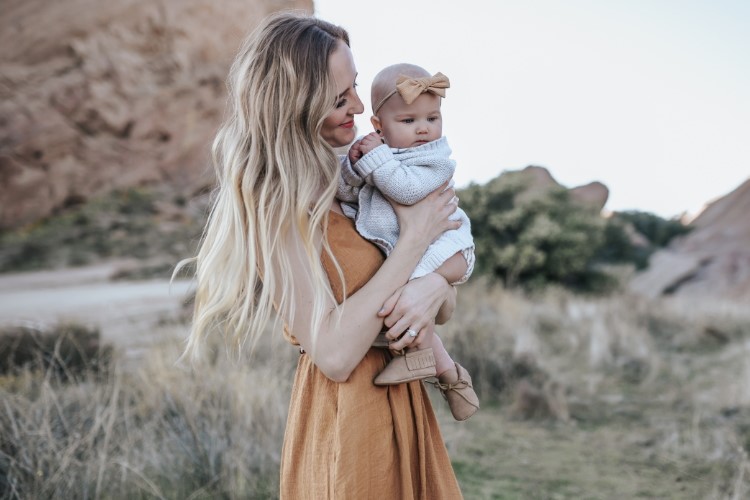
I frantically searched for solutions, and tried a few different techniques and approaches that were supposed to help. There were sticker charts and other reward systems, time outs and ‘natural’ consequences, more quality time with each child, more quality time for me, less sugar for them, less alcohol for me, less screen time for them, and more structured routines for all of us.
Some of them worked for a while but, in the end, when I was triggered by my children’s behaviour, it all went downhill. In those moments, I couldn’t use any of the approaches kindly and calmly, which apparently was the right way to use them. At one of my lowest points I found myself trying unsuccessfully to take a sticker off my son’s sticker chart, as he had apparently ‘un-earned’ it. For those of you who haven’t tried this, it’s remarkably hard to do.
During those early years with my family, I also decided to retrain as a counsellor, just to add to my already fraught life. I’d always been fascinated by people – why they think and feel the way they do, and how they grow and change. Researching ideas of wellbeing and mental health was a wonderful distraction for me but, looking back, I was also on a journey to understand why I reacted to life the way I did, and what would help me, as well as being interested in what would be beneficial for anyone else.
My journey led me to a much wider exploration: to a new understanding of stress. It led me to mindfulness and to empathy. More than anything, it led me to an understanding of, and relationship with, my brain for the first time in my life. The missing pieces of the puzzle started to fall into place and both my life and my parenting began to change.
I’m a few years on now, and it’s been an extraordinary journey for me to go from trying to hide how chaotic our home really was, to working with thousands of parents and teaching a new style of parenting. However, it’s not all new. My approach is based on ancient ideas of how relationships work, how children thrive, and how parents and children relate naturally, and all embedded in contemporary brain science.
The Mindful Parent is about how those changes have happened in the homes and lives of so many parents I’ve worked with, as well as in my own. It will enable you to make powerful shifts in your life – changes that will help you connect deeply with your children and move through your family life with more presence and more joy. It’s not a book that will add more to your endless to-do list but will point you back towards your deepest intuition. It will bring you back to yourself, simplify parenting down to its core, bring more calm to your home on even the most chaotic days, and help you to create deeper and more lasting connections with your children.
I still yell and I still have meltdowns. There are days that remind me of how it used to be. I still throw the occasional lunchbox, trot out the odd four-letter bomb, or give up in despair at being the worst parent in the world. But those days are few and far between and my recovery is quick.
Now there is more fun and more freedom – for me and for my kids. I know how my brain works, how my thoughts work for me and against me, and what role my emotions play in my reactions. I also have tools and techniques that are so kind and effective it’s hard not to use them. And that leaves me free to love my children and connect with them in ways I never thought were possible.
There are no parenting experts, so don’t be fooled, I am not one. However, I have stories to tell of how transformation is possible in our lives, and techniques to share that enable that to happen. And the result is that we get to launch our children into the world with firmer roots and stronger wings, and not lose our own lives while doing it.
The focus of The Mindful Parent is us rather than our children. My children are a little different – they are more resilient than they were, they bounce back from disappointment more quickly and they have more emotional awareness. But the biggest difference has been in me. I feel as if I have a protective cushion around me, like having suspension with decent shock-absorbers. Life with children, especially with five, is no less ‘shocking’ or bumpy than it’s always been, but I don’t feel it as acutely, I react much less strongly, and we have so much more fun.
READ OUR Q&A INTERVIEW WITH SHIRLEY PASTIROFF
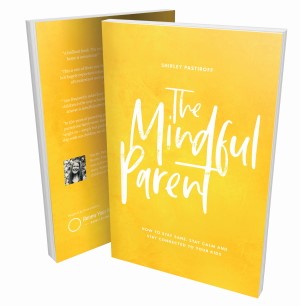 Shirley lives in Auckland with her husband Simon and their five kids. She's a counsellor and parent coach at Renew Your Mind, renewyourmind.co.nz
Shirley lives in Auckland with her husband Simon and their five kids. She's a counsellor and parent coach at Renew Your Mind, renewyourmind.co.nz

AS FEATURED IN ISSUE 52 OF OHbaby! MAGAZINE. CHECK OUT OTHER ARTICLES IN THIS ISSUE BELOW
